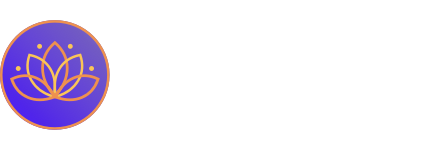Dopamine Nation by Dr Anna Lembke is one of the seminal books on addiction published in recent years. In this book, Dr Lembke exposes how modern culture is exploiting the addictive tendencies of human beings and what we can do about it.
We may not all be heroin or sex addicts, but the vast majority of us have an object in our lives which, when consumed or engaged in, gives us the desired dopamine hit. When we encounter a difficult period in our lives or we feel a bit lost, this object has a propensity to take over our lives.
Radical honesty as a self-help tool
One of the tools for dealing with addiction, Dr Lembke describes, is radical honesty. That means being completely open and truthful to the people around us as well as ourselves about our actions, motivations, and shortcomings.
Radical honesty is hard because it forces us to confront the imperfect reality of who we really are. Adopting radical honesty, we refrain from telling any lies, including the ‘white lies’ that (seemingly) hurt no one.
Coming back to addiction, radical honesty is incorporated, for example, into the Twelve Steps of Alcoholics Anonymous. Step 4 requires us to make “a searching and fearless moral inventory of ourselves” while in order to complete Step 5, we need to have “admitted to God, to ourselves, and to another human being the exact nature of our wrongs.”

Why does it matter? The plenty vs. scarcity mindset
Radical honesty as a psychological concept has been around for a while, but Dopamine Nation helps explain the true extent of why it matters. You could think that being honest is meant to create a natural deterrent, helping people to avoid their destructive tendencies. Going back to your unhelpful habits is, after all, a little bit harder after you have exposed them for the whole world to see and pledged to have abandoned them.
Dr Lembke, however, brings a different and a rather more intriguing explanation for why radical honesty works. She describes her theory of ‘the plenty mindset’ vs. ‘the scarcity mindset’. This theory is independent of any actual material wealth and instead has to do with our need for the world around us to be a safe, predictable, and orderly place.
When people around us are telling the truth — even if it is less shiny than a lie — we feel more confident about the world and about our future. Truth-telling fosters human connection and the feeling of reliability, which in turn enhance our feeling of safety. When people around us are dishonest, on the other hand, our future is less predictable. The world does not seem to be an orderly and safe place. This increases our cognitive load and we are more likely to go into a survival mode. Being in a survival mode in turn forces our brain to favour short-term gains to long-term outcomes. As a result, we are more likely to fall into the trap of obsessive overconsumption or addiction.
A false reality
The eye-opening realisation here is that we are capable of inducing the plenty or scarcity mindset in our own lives through our honesty or lack thereof. If we create a false reality by altering our own autobiography in order to suit our image of who we should be, we too can exponentially increase our mental load which leads to a state of permanent stress.
The book mentions the concept of the ‘false self’, which was introduced by the English psychoanalyst Donald Winnicott. The ‘false self’ is a self-constructed persona which people create as a response to unbearable external demands and stressors. The danger lies in the fact that creating a “false self” can lead to feelings of profound emptiness. Because our true lives differ from the self-constructed false reality, we can feel detached and unreal. This leads to serious mental health problems. As Dr Lembke observes, “if we do not feel real, ending our lives feels inconsequential.”

While this remark may seem shocking, the truth is that the vast majority of us are creating an alternative reality, a ‘false self’’, every day. This is most apparent on social media where the picture we portray rarely matches our lived experience in full. From hiding the less comfortable facts to outright altering our facial features with filters, social media magnify our tendency to lie and, as a result, we feel more detached and empty than ever before.
Being truthful in order to be free
Radical honesty offers a way out. If we always tell the truth, we feel more authentic and alive. By strengthening the connection with our true selves and the people around us, we create a safe and reliable reality and thereby foster good mental health. In the words of one of Dr Lembke’s patients: “As long as I’m telling the truth, I am free.”
So what are some of the ways in which we can practise radical honesty?
- Avoid telling lies, no matter how insignificant they seem. Our brains have a tendency to shift the boundaries of insignificance in difficult times.
- Re-evaluate your participation in the toxic social media culture. Feel free to share your experiences, but allow yourself to be truthful and authentic.
- In a situation which did not go according to plan, assess your own contribution to it and take appropriate responsibility.
- Try to be authentic and open in your closest relationships. Share things about yourself that you are less proud of as much as you share anything else. We often fear losing our relationships if we open up but the opposite is the case — only authenticity can lead to genuinely deep and fulfilling human connections.
- Demand radical honesty from others. If you are party to a situation where others are being dishonest, address the problem if possible.
